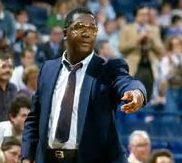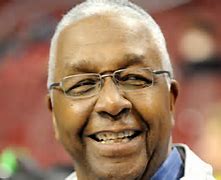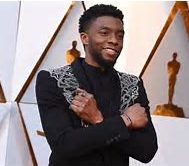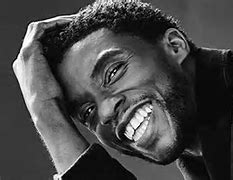Once again, our community must deal with shocking and heartbreaking news. Of course, we find ourselves dealing with this sort of thing practically all the time, especially now in the Age of CoVID-19, but it still often comes as a shock when it happens to those we consider to be just now reaching what should be the prime of their lives. And we need to remember that, somewhere in the world, and in our community, we are forced to say goodbye to friends, comrades and loved ones every day. This is not to diminish the importance of any of those dear souls, only to make note of some who are known to the larger community, or at least should be, because of their community work or their contributions to humanity in one way or another that managed to touch so many of us.
We mention the unfortunate passing of former NBA star Clifford “Uncle Cliffy” Robinson, and many of us will give respectful remembrances for Joseph Rosenbaum and Anthony Huber, the two White victims of 17-year-old Kyle Rittenhouse who were supporting the anti-police brutality protest in Kenosha, Wisconsin in the wake of the shooting of Jacob Blake by police, and who apparently saw Rittenhouse as a threat to marchers and had attempted to restrain him.
This Ancestors’ Call goes, however, to two bright lights in the local Baltimore-Washington area, and a national, no, international beacon of Afrikan dignity, strength, genius and morality. Indeed, all three of these Brothers shined their respective lights on their local, national and global communities. One of them, legendary college basketball Coach John Thompson, reached the age of Elderhood before departing us; the others, Baltimore area activist Bro. Charles Jackson and actor Chadwick Boseman, were taken from us in the prime of their lives, but have earned their places of honor.

Bro. Charles Jackson addresses the audience at a 2018 SRDC Pan-Afrikan Town Hall Meeting at the Arch Social Club in Baltimore.
Bro. Charles “Heru” Jackson
The Baltimore Pan-Afrikan Community was dealt another blow as August began to draw to a close. We had already lost West Baltimore community activist George Mitchell. This one, however, struck closer to home for two organizations with which I am affiliated. Our good friend and comrade Bro. Charles “Heru” Jackson transitioned to the Honored Ancestors after suffering a stroke and several complications that developed during his hospital stay.
Bro. Charles was a regular supporter of several Pan-Afrikan organizations in the Baltimore, Maryland area. He attended and supported several Pan-Afrikan Town Hall Meetings sponsored by the Sixth Region Diaspora Caucus (SRDC). He was a regular contributor to the Maryland Council of Elders (MCOE), attending regular meetings of the organization since its official founding in 2017. He was a regular presence at Afrikan Liberation Day, Garvey Day and community meetings sponsored by MCOE. He also participated in meetings to plan critical aspects of these events, from social media outreach to event program development. And his calming words and gentle smile could light up a room or calm a simmering argument with surprising ease.
His activism, and support of campaigns for truth and justice, applied to national efforts as well. When Bishop William Barber’s Poor People’s Campaign visited a West Baltimore church a couple of years ago, Bro. Charles invited me to come and hear the message. Even though Bishop Barber was not able to attend this meeting due to some unforeseen circumstances that prevented him from traveling to Maryland, the rest of his organization was there, and so was Bro. Charles. The church organization he worked with had arranged the visit by the Poor People’s Campaign. Bro. Charles demonstrated, as many others have before, that one could work for Pan-Afrikan liberation without falling into the rhetoric of anger and without neglecting the struggles of the downtrodden everywhere.

Bro. Charles Jackson, far left, with SRDC and MCOE members and other attendees at the 2018 SRDC International Summit at the Great Blacks In Wax Museum in Baltimore.
Bro. Charles finally departed from this earthly plane on the morning of August 27. He was 49 years old. I will miss our occasional phone conversations, discussions at organizational meetings and rides in my car. I will miss his insights, always delivered with a cheerful, encouraging attitude. Most of all, I will miss his friendship, and I have some regrets at not having taken the opportunity to deepen that friendship. Yet another builder, teacher and warrior gone too soon when we all thought we would have more time. Rest in Power, my friend.
 Coach John Thompson
Coach John Thompson
Word came down this past weekend of the passing of Coach John Thompson. He had learned and honed the philosophy of sound defensive basketball as a player, winning two NBA world championships with the Boston Celtics as the backup to Hall of Fame center Bill Russell. He became a legendary college basketball coach who made a reputation and transformed a college team as well as the entire Baltimore-Washington sports community based on his tough defensive philosophy. But he would be most appreciated for the impact he had on the young men he mentored on the Georgetown University basketball team. John Thompson took over a team that only won a handful of games each year and before long had turned it into a college basketball powerhouse.
He and star center Patrick Ewing would go to three NCAA Final Fours, two college championship games and win the NCAA National Championship in 1984. The players he would coach to college superstardom and Hall of Fame professional careers included Ewing, center Dikembe Mutombo, forward Alonzo Mourning and point guard Allen Iverson. Mourning would win an NBA championship with Dwayne Wade and the Miami Heat. Ewing would become the mainstay of the New York Knicks, who he would take to the NBA Finals, and is the current coach at his college alma mater, Georgetown, a job he accepted after a recommendation and urging from former coach Thompson. Mutombo would establish himself as one of the greatest defensive players ever as well as a humanitarian and activist. Iverson would dominate in the NBA with the Philadelphia 76ers, transforming the point guard position into a scoring machine long before Golden State’s Stephen Curry would do it. At his Hall of Fame induction ceremony, he credited Thompson, who had stood by him when practically no one else would, with saving his life. And Thompson, the first Afrikan-American head coach to win a college national title, would transform the game of basketball with his emphasis on tough, physical defensive play and an insistence on education and character development as well as basketball skill. According to a report, even as he was leading his Georgetown teams to 24 consecutive post-season appearances, the graduation rate of Thompson’s four-year players was a whopping 97%.
 He also demonstrated his commitment to principles when he walked off the court at the start of a game to protest Propositions 42 and 48, which restricted college basketball scholarships in a way that disadvantaged Black players especially (the dependence on SAT scores to determine scholarship eligibility was particularly problematic because of the test’s cultural biases). He also put his money (or, rather, his well-being) on the line when he met with then-notorious local drug kingpin Rayful Edmond III in 1989 to tell him to stay away from his players. Edmond reportedly never associated with Georgetown players again after that meeting.
He also demonstrated his commitment to principles when he walked off the court at the start of a game to protest Propositions 42 and 48, which restricted college basketball scholarships in a way that disadvantaged Black players especially (the dependence on SAT scores to determine scholarship eligibility was particularly problematic because of the test’s cultural biases). He also put his money (or, rather, his well-being) on the line when he met with then-notorious local drug kingpin Rayful Edmond III in 1989 to tell him to stay away from his players. Edmond reportedly never associated with Georgetown players again after that meeting.
John Thompson was a man who said what he meant, meant what he said, and backed it up with action. John Thompson joined the Honored Ancestors at 78 years of age.
 The “Black Panther”, Chadwick Boseman
The “Black Panther”, Chadwick Boseman
Some of us noticed him when he portrayed baseball legend Jackie Robinson in 42. Others recognized him when he was cast as NAACP lawyer and later Supreme Court Justice Thurgood Marshall in Marshall. Most of us knew who he was after his star turn as the legendary James Brown in Get On Up. But all of us found ourselves overcome with pride and shouts of “Wakanda Forever!” after he brought to life the first Afrikan superhero, King T’Challa, in Black Panther.
Not having viewed that movie at least once became, for some, justification for the forfeiture of one’s “Black Card”. Personal and political arguments could be doused with reminiscences about how we felt at key moments of the film, or what the deeper points of the movie had inspired us to consider regarding our Afrikan pride and the responsibility to share our gifts with others. The crossed-arm salute would become our substitute for the handshakes and hugs that we have been required to forsake during the CoVID-19 crisis.
News of his passing on Friday, August 28 came as a shock to all of us. All, that is, except his family, his doctors, and those he had let into his close confidence. His heroic stature assumed greater significance when it was revealed that he had been fighting a personal war against Stage III, then Stage IV colon cancer over the last four years, filming most of the above iconic roles between surgeries and chemotherapy sessions. And, despite the physical toll these sessions must have taken (I have lost a brother-in-law and two close friends to cancer and knew what chemotherapy did to them physically), no one knew, not even director Spike Lee, who worked with Boseman on his final project, the recently-released Da 5 Bloods, mere months before the cancer would finally overtake him.
He was quoted as having said that he hoped when he stood before God he would have no more talent left, that he would have spent it all in the time he had. His torrid schedule, even in the face of such a deadly foe as cancer, is a testament to his commitment that he would not die with his music still inside him. He sang his song long, loud and proud up to the very end.
 Needless to say, the expressions of shock and sympathy from the general public as well as the stars of Hollywood came in a flood. Family members of the historic figures he portrayed in film expressed their condolences and their appreciation of his career, most notably the family of Jackie Robinson. Most of us will be most impacted by his performance as T’Challa, the king of the fictional Afrikan nation of Wakanda, for the strong vision of Afrikan unity, Afrikan genius, and Afrikan leadership and morality he and the other actors portrayed. Many of us would become emotional when watching his seminal superhero movie. I imagine it will be much more the case now. A heartfelt Wakanda Salute to New Ancestor Chadwick Boseman, who left us at the shockingly young age of 43.
Needless to say, the expressions of shock and sympathy from the general public as well as the stars of Hollywood came in a flood. Family members of the historic figures he portrayed in film expressed their condolences and their appreciation of his career, most notably the family of Jackie Robinson. Most of us will be most impacted by his performance as T’Challa, the king of the fictional Afrikan nation of Wakanda, for the strong vision of Afrikan unity, Afrikan genius, and Afrikan leadership and morality he and the other actors portrayed. Many of us would become emotional when watching his seminal superhero movie. I imagine it will be much more the case now. A heartfelt Wakanda Salute to New Ancestor Chadwick Boseman, who left us at the shockingly young age of 43.
